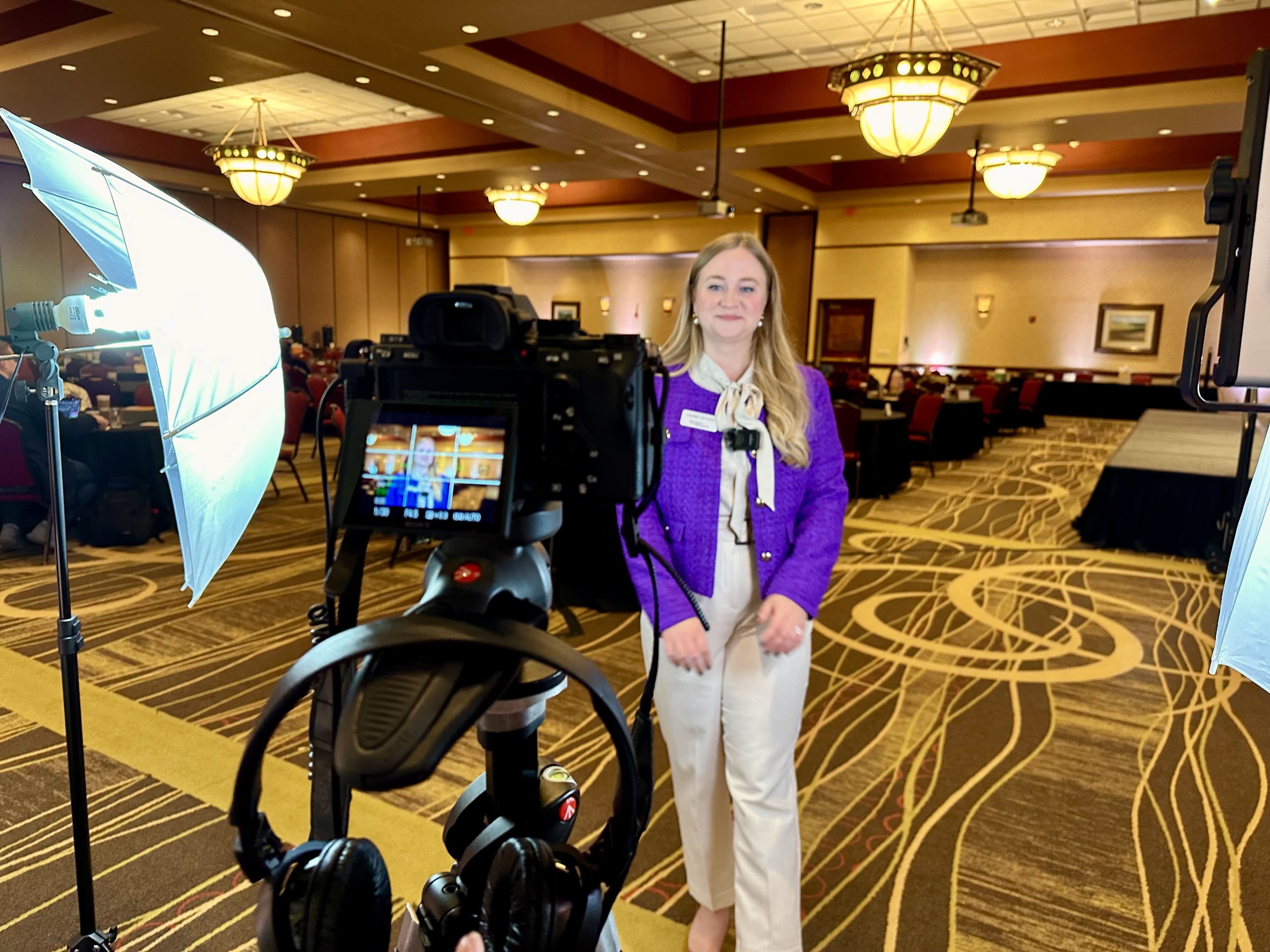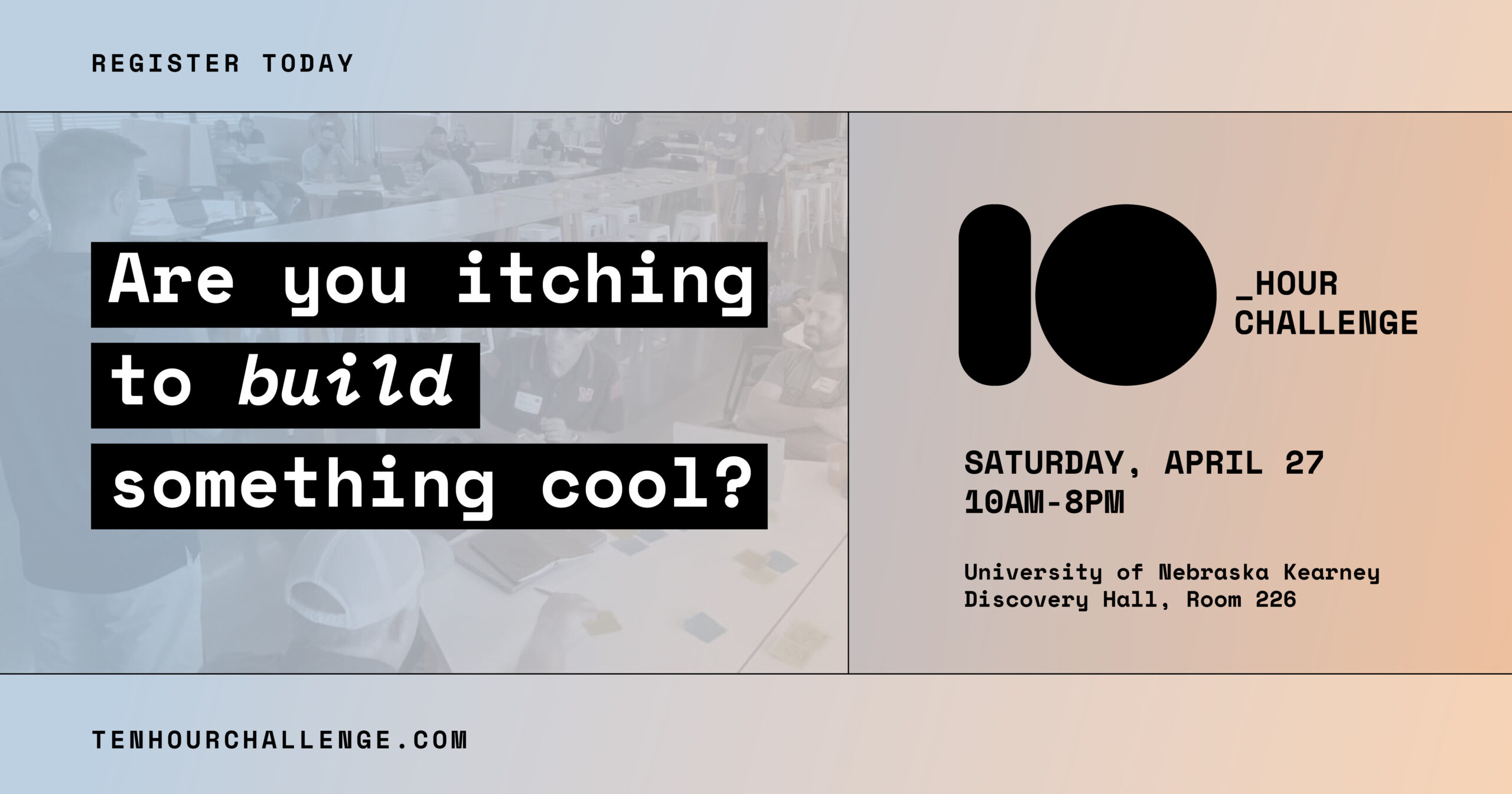In an effort to drive innovation and growth across Nebraska’s tech sector, Tech Nebraska in collaboration with the Nebraska Chamber of Commerce and Industry, hosted its inaugural summit in Lincoln in late November.
A group of 180 technology leaders and enthusiasts from across the state gathered to learn about Tech Nebraska’s mission and discuss pathways to a future marked by growth, inclusivity and technological advancement.
Tech Nebraska aims to propel Nebraska into the forefront of the nation’s technology landscape by fostering collaboration, promoting innovation and influencing policy. The organization is gearing up for policy efforts starting in 2024 and 2025, according to remarks from Tech Nebraska Executive Director Laurel Oetken.
In addition to introducing Tech Nebraska to the community, the event shared insights and resources from local, regional and national leaders in tech policy and innovation. Keep reading for event takeaways.
BECOME A SPONSOR
Join us in championing the narrative of success, resilience, and ingenuity that defines Nebraska’s startup community. Learn more »
Nebraska’s Current Tech Landscape: A Call to Action
Nebraska currently ranks 35th in new entrepreneurs, 36th in STEM university graduates and 39th in startup density nationwide, Oetken said. In spite of the current low rankings, demand for technical skills and startup resources in the state are growing, she said.
The number of technology jobs in the state increased by 12,000 jobs between 2016 and 2021. The Nebraska Business Innovation Act, which provides crucial infrastructure to fund new technologies and innovations at scale, has grown from deploying $21.2M in startup funding in 2012 to more than $317M in 2022.
Oetken says improving these statistics presents a major opportunity to elevate Nebraska into the top tier of the nation’s technology ecosystem. By uniting tech leaders from diverse industries through events like the summit and other initiatives, the organization wants to position Nebraska as a driving force in technology and innovation.
Tech Nebraska’s Goals
Oetken outlined the following goals in her address to summit attendees.
1. Convening and Connecting: The organization aims to bring together Nebraska’s tech community and leaders, fostering collaboration and networking opportunities.
2. Promoting Growth: Tech Nebraska seeks to drive growth in Nebraska’s technology and business communities, capitalizing on the collective effort of tech leaders.
3. Innovation and Enablement: The organization is committed to promoting greater technology innovation and enablement across Nebraska’s core industries — agriculture, manufacturing, finance, healthcare, technology, logistics.
4. Diversity, Equity and Inclusion (DEI): Tech Nebraska is dedicated to advancing DEI efforts in the technology landscape, ensuring a more inclusive and representative industry.
5. Influencing Legislation: Tech Nebraska plans to influence legislation on federal, state and local levels, ensuring policies align with the needs of a burgeoning tech community.
Tech Leadership Insights: Fostering Innovation
The Technology Leaders Panel featured insights from Ryan Wade of Lutz, Ryan Cameron from Children’s Hospital and Medical Center, and Chris Dill of Kiewit. They discussed their perspectives on the future of technology in Nebraska in a conversation moderated by Catherine Lang, the outgoing state director of the Nebraska Business Development Center (NBDC).
Wade said “Every Nebraska company is a tech company,” underscoring the pervasive influence of technology across all sectors. Cameron, focusing on healthcare technology, urged a measured approach to emerging technologies, emphasizing the importance of understanding the technology and its applications before diving in. Dill highlighted the potential of AI, but stressed the need for a thoughtful approach, considering challenges such as data security, privacy and ethical considerations.
The panel advocated for the revival of “old school” methods, like hackathons, to spur internal innovation. Cameron stated, “The best ideas never come from you [the technology leader],” citing the need for diverse perspectives in the ideation process. He said organizations that regularly host hackathons or have some other formal process that allows anyone to submit an idea experience a 30% improvement in their bottom line on average.
The importance of re-skilling the workforce for emerging technologies like AI, and implementing continuous improvement practices were mentioned as additional tools for sparking innovation within organizations. Lang pointed out the opportunity to challenge the traditional higher education system to embrace lifelong learning to better meet the evolving needs of the workforce.
The summit also featured discussions with midwest and national tech policy leaders shedding light on challenges, opportunities and solutions in the tech policy landscape. The panel included Melissa Roberts Chapman from the Federation of American Scientists, Ruthie Barko from TechNet and Mollie Ross from the Technology Association of Iowa, and was moderated by Dan Hoffman of Invest Nebraska.
Beth Tsai, Director for Search, Geo and Assistant Policy under Google’s Trust & Safety Team, delivered the keynote address and shared insights into maintaining user safety while innovating with emerging technology like generative AI.
Organizers said planning for the 2024 Tech Nebraska Summit is already underway.
Hear more from Tech Nebraska Executive Director Laurel Oetken in SPN’s interview with her for Ep. 7 of the Weekly Rundown.



